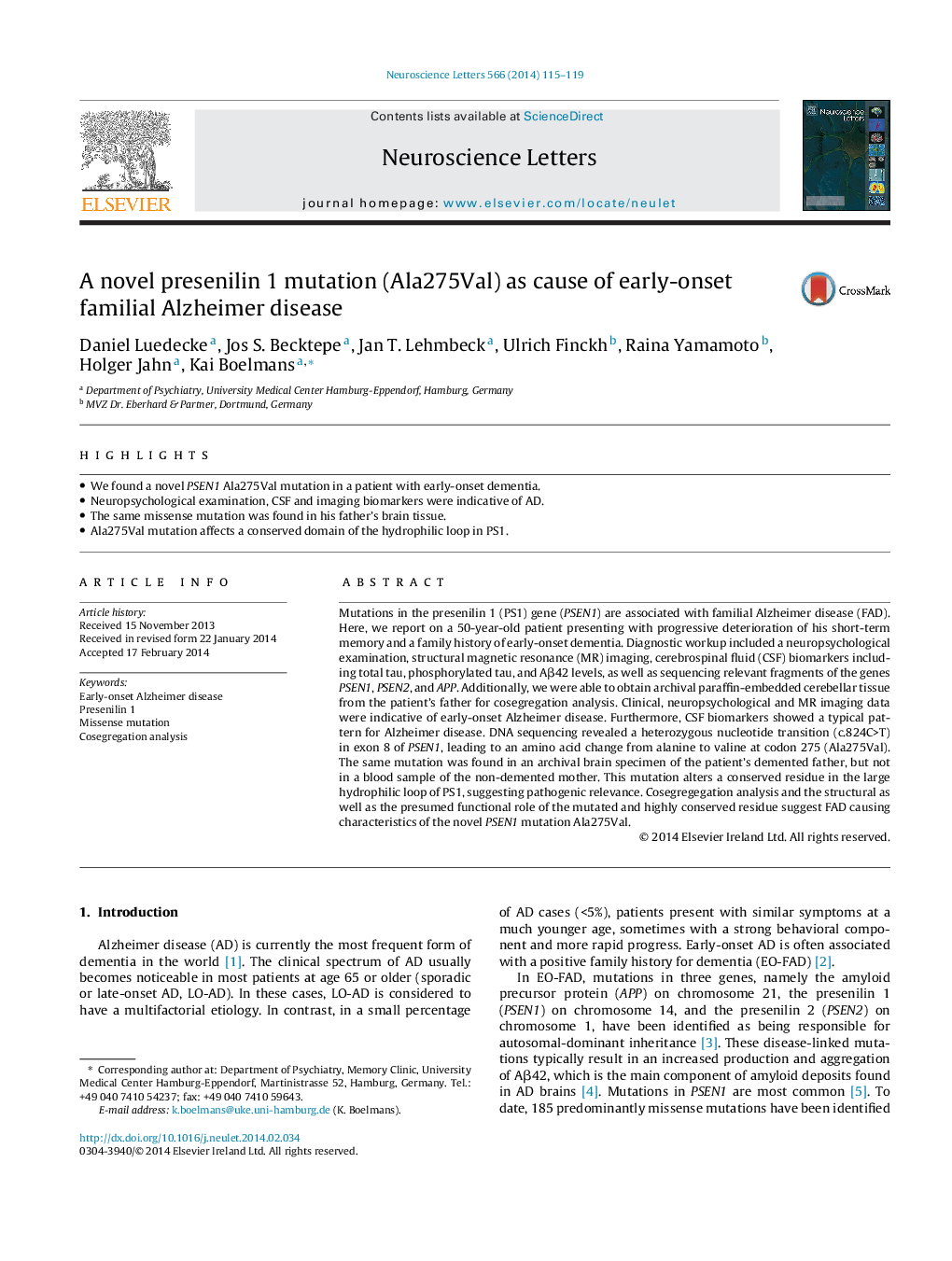| Article ID | Journal | Published Year | Pages | File Type |
|---|---|---|---|---|
| 6282117 | Neuroscience Letters | 2014 | 5 Pages |
Abstract
Mutations in the presenilin 1 (PS1) gene (PSEN1) are associated with familial Alzheimer disease (FAD). Here, we report on a 50-year-old patient presenting with progressive deterioration of his short-term memory and a family history of early-onset dementia. Diagnostic workup included a neuropsychological examination, structural magnetic resonance (MR) imaging, cerebrospinal fluid (CSF) biomarkers including total tau, phosphorylated tau, and Aβ42 levels, as well as sequencing relevant fragments of the genes PSEN1, PSEN2, and APP. Additionally, we were able to obtain archival paraffin-embedded cerebellar tissue from the patient's father for cosegregation analysis. Clinical, neuropsychological and MR imaging data were indicative of early-onset Alzheimer disease. Furthermore, CSF biomarkers showed a typical pattern for Alzheimer disease. DNA sequencing revealed a heterozygous nucleotide transition (c.824C>T) in exon 8 of PSEN1, leading to an amino acid change from alanine to valine at codon 275 (Ala275Val). The same mutation was found in an archival brain specimen of the patient's demented father, but not in a blood sample of the non-demented mother. This mutation alters a conserved residue in the large hydrophilic loop of PS1, suggesting pathogenic relevance. Cosegregegation analysis and the structural as well as the presumed functional role of the mutated and highly conserved residue suggest FAD causing characteristics of the novel PSEN1 mutation Ala275Val.
Keywords
Related Topics
Life Sciences
Neuroscience
Neuroscience (General)
Authors
Daniel Luedecke, Jos S. Becktepe, Jan T. Lehmbeck, Ulrich Finckh, Raina Yamamoto, Holger Jahn, Kai Boelmans,
